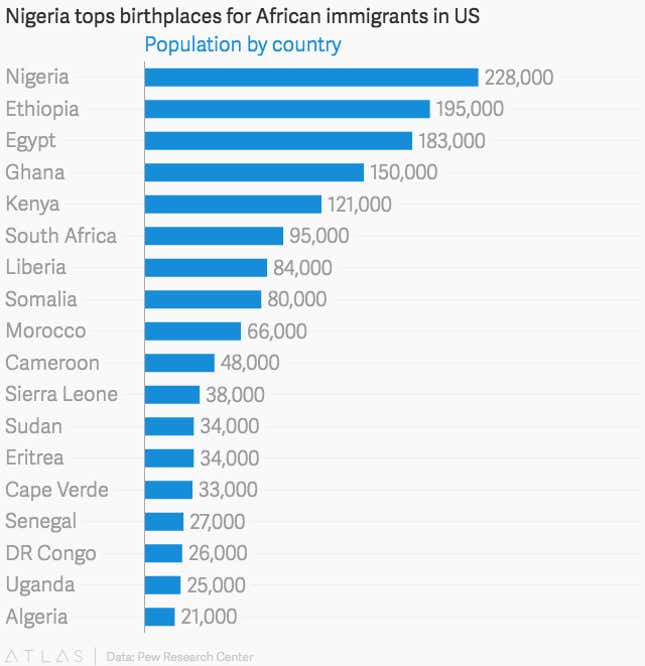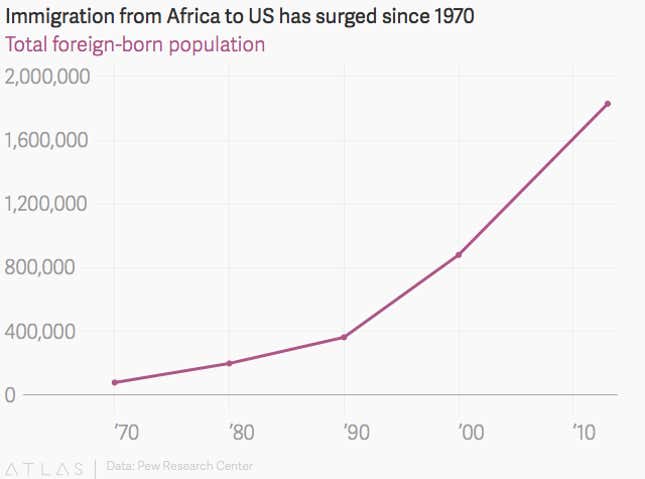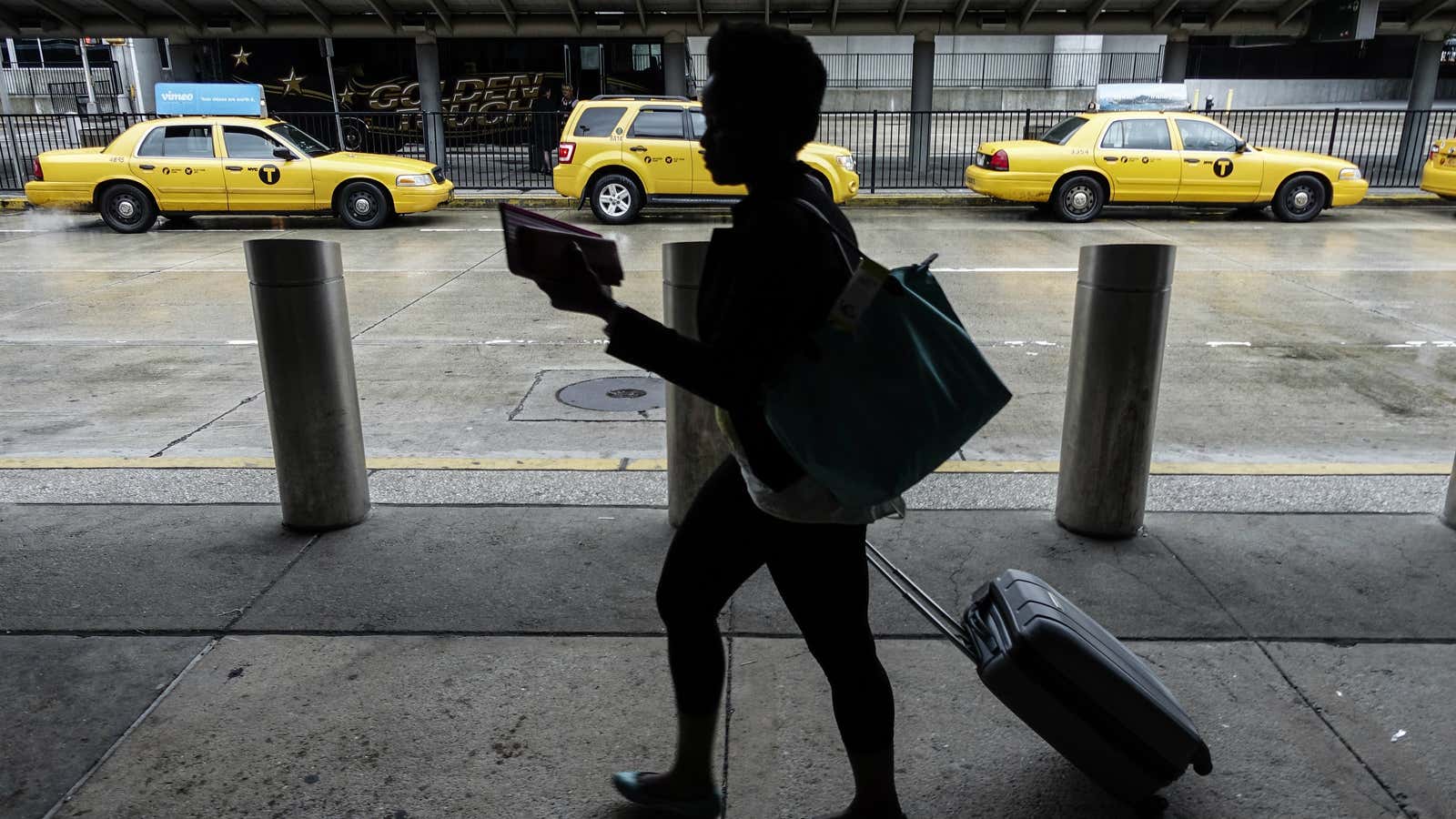Americans weren’t the only ones who aspired to the American dream. Africans did too.
For decades, many across the continent have looked to America, with its promise of opportunity and success for hope. Young Africans grew up hearing tales of relatives who had moved across the Atlantic with meager resources but, enabled by welcoming and tolerant immigrant policies and years of hard work, had achieved success. Despite Trump’s generic and disparaging views of immigrants, Nigerians-Americans, the largest African immigrant group, are among the most educated groups in America with nearly two-thirds holding college degrees and higher levels of education have brought with it higher household incomes. African immigrants in fact outperform most other ethnic/racial groups in general as Bloomberg writes:
African immigrants are also very likely to hold advanced degrees, many of which are earned at US universities. By many measures, African immigrants are as far ahead of American whites in the educational achievement as whites are ahead of African-Americans.

And there has been an upside. Overtime, a well-established diaspora population has proven important for African economies. Remittances to Africa totaled $35 billion last year. But the good times may be over. 2016, the year of Brexit and a Donald Trump presidency has brought with a message for Africans: you’re no longer welcome.

The overriding theme for the eerily similar events was anti-immigration. Nigel Farage, head of the right-wing UK Independence Party (UKIP), spoke of a “breaking point” and successfully blamed all of Britain’s problems on immigrants and for months, Trump has also grabbed headlines, with a hardline stance on immigration. Part of “Making America Great Again”, Trump told us, is kicking out millions of illegal immigrants and shutting the doors to many other people intending to come into the US even though they meet requirements to do so. That rhetoric won him enough votes to attempt to make good on his promises. Given, he’s hardly mentioned Africans—with Mexicans and Arabs being his preferred targets, but how might Africans be welcome when everyone is shut out? Even Americans are thinking of leaving.
Wole Soyinka, Africa’s first ever Nobel prize in literature winner, has promised to rip his green card after Trump’s inauguration. Soyinka is scholar-in-residence at New York University’s Institute of African American Affairs this fall. Back home, amid reactions of despair to news of Trump’s win, Africans also figured out the message.
Of course, staying back home to build Africa comes with an advantage: decades of brain drain can be halted with the continent’s best minds lending their brilliance to solving its problems. But staying back home, by choice, rather than implicit compulsion is a preferable option.
Under president Barack Obama, the son of a Kenyan economist, America appeared more sympathetic to plight of immigrants with policies like Deferred Action for Childhood Arrivals (DACA). But under Trump, that tolerance will be a thing of the past. His win, largely driven by xenophobia and nationalist views, will cause rippling effects beyond America.
Right-wing anti-immigrant movements in Europe are already emboldened by a Trump presidency. Marine Le Pen, the leader of France’s far-right Front National, has congratulated Trump and described his win as “a great movement across the world“. Other far-right leaders in Europe have congratulated Trump and will take his cue in coming elections: drum up fear, anti-globalization and anti-immigration. And again, African migrants will take a hit.
With over 3,800 dead, UN’s refugee agency says 2016 has been the deadliest year on record for migrants crossing the Mediterranean. So far, Europe’s stiff approach to the crisis has been blamed for making traveling via treacherous waters, an ordinarily perilous journey, an attractive last resort. If anti-immigrant right-wing leaders spring up across Europe, the situation is not likely to get any better and many more may die.
Across the world, people wonder what Trump in the White House will mean. Mexicans are left wondering if that wall will ever be built. But Trump won’t have to build a physical wall between Africa and America over the coming years. For much of the time, it will likely feel like one exists.




